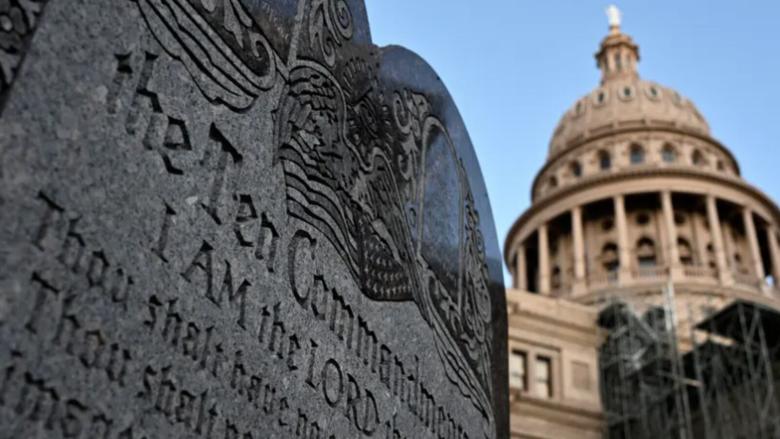Before the 2024-2025 school year in Texas, the Texas Education Agency (TEA) enraged many teachers, administrators, parents, and a few particular Texas Teachers Unions. It decided to roll out elementary school curricula into statewide reading and language arts with Biblical references and teachings.
The Texas Tribune reviewed the proposed textbooks for the next school year, discovering “religious references are featured prominently.”
The curriculum promotes, for example, lessons on Leonardo Da Vinci’s “The Last Supper” alongside the Gospel of Matthew, which centers on Jesus’ crucifixion and its atonement for human sin. References also include the parable of the good Samaritan in a social studies unit and the teaching of “do unto others as you would have them do unto you” in a kindergarten unit about fairy tales and folktales.
Over the past few months, the disagreement with having a firm position on teaching the Bible in public schools has been brewing. This past week, the State Board of Education (SBOE) gathered in Austin to review progress on the TEA’s decision and listen to the schools in favor of it, and the groups and representatives from Texas Teacher Unions that are not.
The proposed curriculum focuses on instructional updates in the classroom for kindergarten through 5th graders. Although there have been a few public statements against the decision to exclusively feature the Bible in statewide elementary classrooms, Texas Governor Greg Abbott supported the TEA’s decision vociferously.
“Last year, the Texas Legislature passed and I signed a law that directed the Texas Education Agency to purchase and develop instructional materials that will bring students back to the basics of education and provide the necessary fundamentals in math, reading, science, and other core subjects,” Gov. Abbott said.
“The materials will also allow our students to better understand the connection of history, art, community, literature, and religion on pivotal events like the signing of the U.S. Constitution, the Civil Rights Movement, and the American Revolution. I thank the TEA for their work to ensure our students receive a robust educational foundation to succeed so that we can build a brighter Texas for generations to come.”
State Faceoff with SBOE and Texas Teachers Unions

Before the SBOE hearing, various groups from across came in defense and against the TEA decision, including Christians Against Christian Nationalism and Anti-Defamation League Texas, which have been the most demonstrative against the legislation. The curricula under the classroom microscope originated from House Bill (HB) 1605, the primary materials bill from the 88th Texas legislative session.
Christians Against Christian Nationalism, the leading Texas Teachers Union against Gov. Abbott’s decision, sees the ruling to include Biblical references as treating other religions as “second-class faiths.” Their position is not an atheistic approach to the classroom; it’s more polytheism and fighting for equal recognition.
Whether we worship at a church, mosque, synagogue, or temple, America has no second-class faiths. All are equal under the U.S. Constitution. As Christians, we must speak in one voice condemning Christian nationalism as a distortion of the gospel of Jesus and a threat to American democracy.
Their thought, along with the ADL Texas and other Texas Teaching Unions, is that Christian Nationalism is behind this TEA focus, not personal evangelism.
Christian nationalism seeks to merge Christian and American identities, distorting both the Christian faith and America’s constitutional democracy. Christian nationalism demands Christianity be privileged by the State and implies that to be a good American, one must be Christian.
It often overlaps with and provides cover for white supremacy and racial subjugation. We reject this damaging political ideology and invite our Christian brothers and sisters to join us in opposing this threat to our faith and to our nation.
State Board of Education Listens to Public Sentiment and Private Scripture

It’s no secret that a Republican-dominated board and state Congress will influence and land a vote on a state-approved Kindergarten through 5th Grade curriculum shared statewide that will feature Bible stories in every grade and most subjects.
Although the official vote occurs in November, planned discussions took place this past week in Austin about how the TEA would implement that decision. The apparent loophole in the statute is while the 2023 state law required the TEA to develop the new curricula, districts are “not forced” to use them.
Another Texas Teachers Union is the Anti-Defamation League in Austin, which is fighting antisemitism for Jewish students, particularly in place of war-torn sentiment seen in Lebanon and Israel.
“It’s a question of inclusivity,” said Jackie Nirenberg, regional director of Anti-Defamation League Austin, an organization fighting antisemitism and bias against Jewish communities. “It’s also a very slippery slope. Because once we open the door to that kind of content, it’s much easier to get more and more religious content into the curriculum.”
TEA Commissioner Mike Morath spoke with The Texas Tribune about the contested curriculum and addressed some lesson plans for K–12 students that don’t include religious references (e.g., math and science).
Morath noted that religious references only make up a small “but appropriate” fraction of the content pie and that the textbooks mark a shift from a skills-based curriculum to a more “classical, broad-based liberal arts education.” Conservatives nationwide are championing a similar approach to education, which Republican Florida Gov. Ron DeSantis described as “focusing on core academic subjects and rejecting indoctrination.”
State leaders, like Abbott and Lt. Gov. Dan Patrick, may hear what is being said, but agendas seem to lead the charge.
- In 2021, state legislators passed a law requiring public schools to display “In God We Trust” from donated posters and other ancillary signs.
- In 2022, Austin opened the doors to allow volunteer chaplains to “provide mental health services to students,” which leans heavily on Biblical text.
- In 2023, an effort was made in the Texas Senate to mandating the 10 Commandments would be featured in all Texas school classrooms. The tactic stalled, but Lt. Gov. Patrick vows to make it happen.
The step from the TEA and state Congress is the next step to bring a sense of Christian faith back into the classrooms. While Texas Teachers Unions have made their arguments, we’ll discover in November if they had any impact on the decision.


